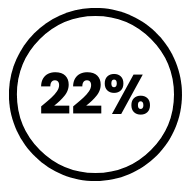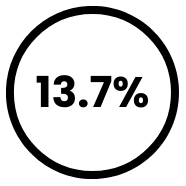You don't need to learn more stuff...
Practice is the Only Thing You're Missing
How Does it work?
Why Does it work?
There's only 2 ingredients to confidence in sales: Knowing what to do, and being able to do it well. There are lots of people, programs, and books specific to the MSP space that will tell you what to do. That's great. But then you have to be able to DO what you've learned. The only way to do that is to practice.
You can do that in practice in front of your prospects, which is expensive and embarrassing; or you can practice with other MSPs so that you can know (for a fact) that you are prepared to be at your best no matter what comes your way.
Don't take my word for it

A Sales Executive Council study found that Sales reps who receive at least three hours of coaching (that include drilling) per month achieve 17% more sales than those who receive two hours or less.

A HubSpot Survey of over 500 sales professionals found that those who practice their sales skills on a regular basis are 22% more likely to exceed their quotas.

The Aberdeen Group cataloged that companies with a formal sales training and enablement program (practice) achieve 13.7% higher win rates than those without.
The Best Sales Books Agree
"Like a good musician, a good salesperson practices. ... They do role-playing exercises, where they take turns being the buyer and the seller. They practice handling objections, asking questions, and responding to customer needs."
—"To Sell Is Human" by Daniel H. Pink
"Top performers are far more likely to practice before sales calls than their average performing colleagues. They prepare by reviewing their call objectives and formulating questions that help them uncover the customer's situation, problems, and needs.”
—"Spin Selling" by Neil Packham
"Sales is a skill that can be learned and refined with practice. ... The best salespeople prepare for every interaction, practicing their presentations and role-playing with colleagues to improve their approach and anticipate objections."
—“The Ultimate Sales Machine" by Chet Holmes
"Practice, role-play, and prepare for every sales call, and you will feel more confident and in control. When you know your material inside and out, you can anticipate objections and questions and handle them with ease."
—“The Sales Bible" by Jeffrey Gitomer
"Before every sales call, take time to practice your pitch, and think about the benefits you can offer your prospect. ... The more you prepare, the more confident you will be, and the better your chances of closing the sale."
—"How to Win Friends and Influence People" by Dale Carnegie
"One of the most important things you can do to improve your sales results is to practice your presentations and sales conversations. ... With practice, you will develop a high level of confidence in your ability to sell effectively.”
—“The Psychology of Selling" by Brian Tracy
"The best way to prepare for a sales call is to practice. ... Go over your presentation, anticipate objections, and practice your responses. With enough practice, you'll be able to handle any situation that arises with confidence."
—“Secrets of Closing the Sale" by Zig Ziglar
"Sales is a skill that can be learned and refined with practice. ... The best salespeople prepare for every interaction, practicing their presentations and role-playing with colleagues to improve their approach and anticipate objections."
—“The Ultimate Sales Machine" by Chet Holmes
"Challengers spend more time preparing for customer interactions. They [...] identify potential areas of improvement, and they practice and rehearse their messages and approach before they ever make contact.”
—“The Challenger Sale," Brent Adamson Matthew Dixon

